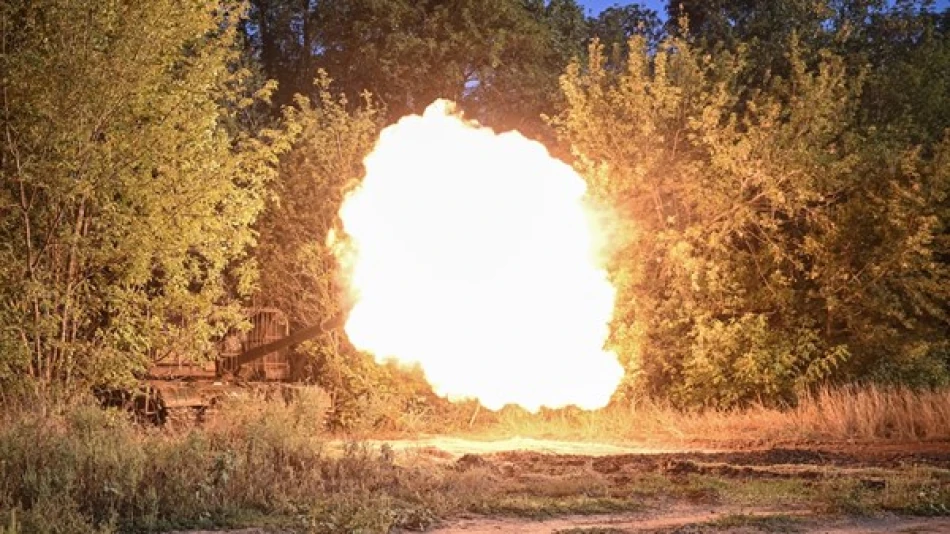
Germany Outlines Stance on Potential Military Mission in Ukraine, Sparking Geopolitical Intrigue
Germany Hedges on Ukraine Military Deployment as Coalition of Willing Nations Seeks Post-War Strategy
Germany announced Thursday it will not commit to participating in any potential military mission in Ukraine following a negotiated resolution to the current crisis, signaling European uncertainty about post-conflict security arrangements as 35 coalition leaders gathered to discuss Ukraine's future. The decision reflects Berlin's cautious approach to military engagement and highlights growing questions about American involvement under changing U.S. leadership.
Berlin Prioritizes Arms Over Troops
German government spokesperson Stefan Cornelius revealed that Chancellor Friedrich Merz emphasized during consultations with Ukraine's allies that priority should focus on financing, arming, and training Ukrainian forces rather than direct military deployment. This approach represents Germany's preferred strategy of robust material support while avoiding the political and military risks of boots-on-the-ground commitments.
Merz positioned Germany as Ukraine's most important partner, pledging readiness to expand this support further. This claim carries weight given Germany's substantial military aid contributions, which have made it the second-largest weapons supplier to Ukraine after the United States, totaling over €7 billion in military assistance since Russia's invasion.
Parliamentary Approval Remains Key Constraint
Any German military participation faces a critical institutional hurdle: parliamentary approval. Cornelius reminded that the Bundestag holds final authority over German military deployments, a constitutional requirement that has historically limited Germany's military interventions abroad. This democratic check provides Berlin with both legal cover and political flexibility to delay or avoid controversial deployments.
The government indicated it will decide "at the appropriate time, when the framework conditions become clear," specifically citing the nature and scope of American participation and negotiation outcomes as determining factors. This conditional stance suggests Germany views U.S. involvement as essential for legitimizing any European military mission.
Coalition of the Willing Seeks Unified Approach
The consultations brought together 35 heads of state and government from the so-called "Coalition of the Willing" alongside Ukrainian President Volodymyr Zelensky. This gathering represents the largest coordinated effort by Ukraine's supporters to plan post-conflict scenarios, yet Germany's hesitation reveals cracks in allied unity over future military commitments.
European partners expressed hope that the United States would continue active participation in joint efforts to support Ukraine, craft security guarantees, and shape diplomatic processes. This emphasis on American leadership reflects European concerns about potential shifts in U.S. policy and the sustainability of transatlantic support for Ukraine.
Diplomatic Push for Putin-Zelensky Summit
Merz advocated for continued efforts to arrange a summit between Russian President Vladimir Putin and Ukrainian President Zelensky to agree on a ceasefire. This diplomatic emphasis suggests Germany views negotiated settlement as preferable to prolonged military engagement, aligning with Berlin's traditional preference for diplomatic solutions over military interventions.
Strategic Implications for European Security
Germany's cautious stance reflects broader European dilemmas about post-war Ukraine security architecture. Without clear American commitments, European nations face difficult choices between substantial military deployments and relying on diplomatic guarantees that may prove insufficient against future Russian aggression.
This hesitation could signal to Moscow that Western resolve may weaken in post-conflict scenarios, potentially affecting both current negotiations and long-term deterrence. Conversely, Germany's emphasis on continued military aid suggests Berlin remains committed to Ukrainian defense capabilities, even if reluctant to provide direct military presence.
The coalition's coordination efforts indicate recognition that Ukraine's security will require sustained international engagement, yet the absence of firm military commitments from key allies like Germany reveals the challenges of translating wartime support into peacetime security guarantees.
Most Viewed News

 Layla Al Mansoori
Layla Al Mansoori






